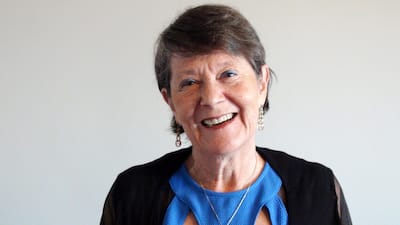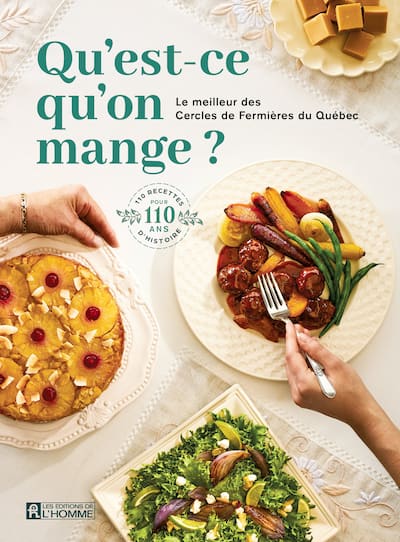After more than a century of history, the Cercles de Fermières du Québec (CFQ) continues to preserve Quebec's cultural heritage and wants to protect its place in our kitchens with a new collection of its best recipes.
What do we eat? wants to help its readers answer this age-old question and at the same time emphasizes 110e anniversary of these associations, which campaign for better living conditions for women and families.
Small pieces of paper
This first cookbook in 25 years is a collection of 110 of history's most memorable recipes, adapted for the modern kitchen. The selection process was similar to that of the first CFQ cookbook, published in 1978.
“At that time, we asked all the participants to collect recipes and find small pieces of paper scattered around their home,” explains Marie Parent, CFQ provincial president. The goal is to have pieces that will be passed down from generation to generation to ensure their longevity.”
Upgraded Recipes
Old-fashioned pea soup, tourtière, sour cream: naturally, grandma's recipes are the focus of attention in What do we eat?. Proving that our gastronomy has evolved over the years, the range of flavors presented in this work is wider than before, and the dishes presented there are better highlighted by the freshness of the products in 2025.
“Our cuisine has developed exponentially with the arrival of all these cultures, which we have warmly welcomed and which bring us their new innovations,” emphasizes M.to me Parent. We also can’t talk about the evolution of cuisine without talking about the evolution of agriculture in Quebec.”
Indeed, while preserving the essence of the recipes of our ancestors, certain changes were made in order to modernize them. Goodbye canned vegetables, margarine and vegetable shortening; hello fresh food fryer and pressure cooker.
“Quasi-existential” question
Moreover, the CFQ, which now has nearly 28,000 members in the province, makes no secret of the impact of an aging population on their popularity. However, they still proudly defend their mission in 2025 and help limit the isolation of women across the province.
Among the achievements of the feminist movement in Quebec, achieved in particular by the CFQ, M.to me The parent is glad to see that the question posed on the cover of the book is no longer just about women.
“Many men are on the 'What Do We Eat?' from now on, she concludes. Whether you are the head of a large family or just a married couple is an almost existential question, and the responsibility no longer rests solely with the woman.
- What do we eat?Les Cercles de Fermières du Québec, Les Éditions de l'Homme, 256 pages.










